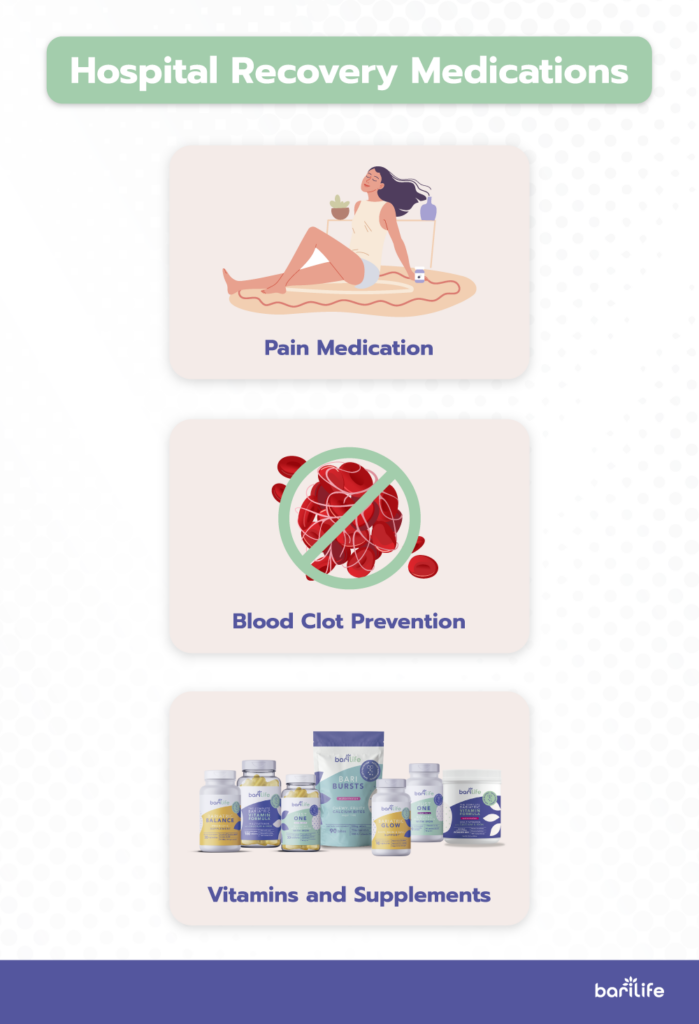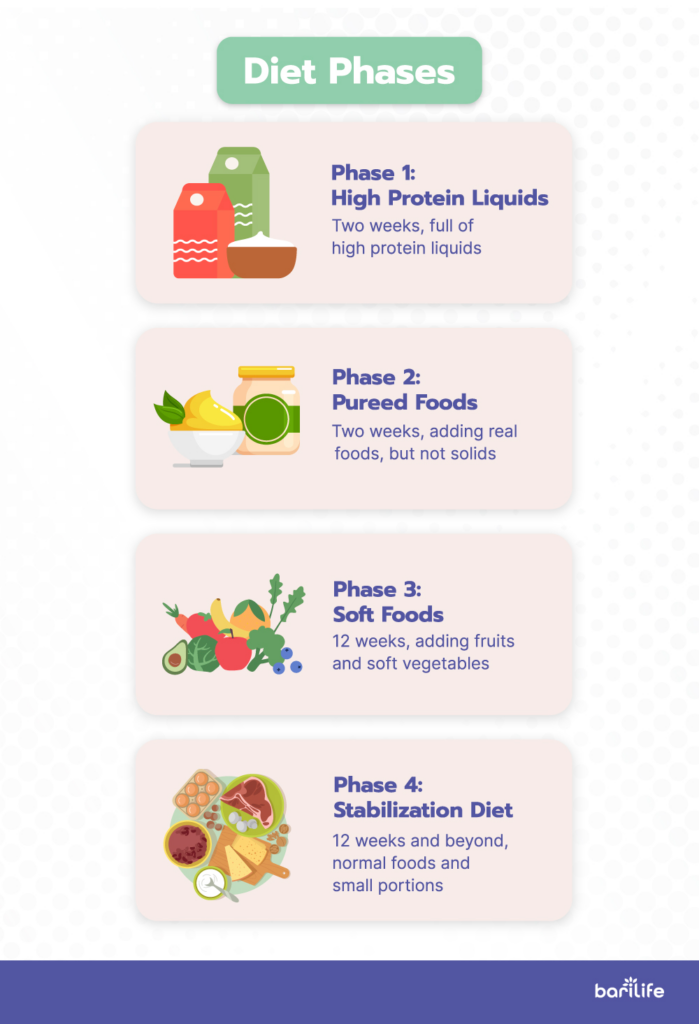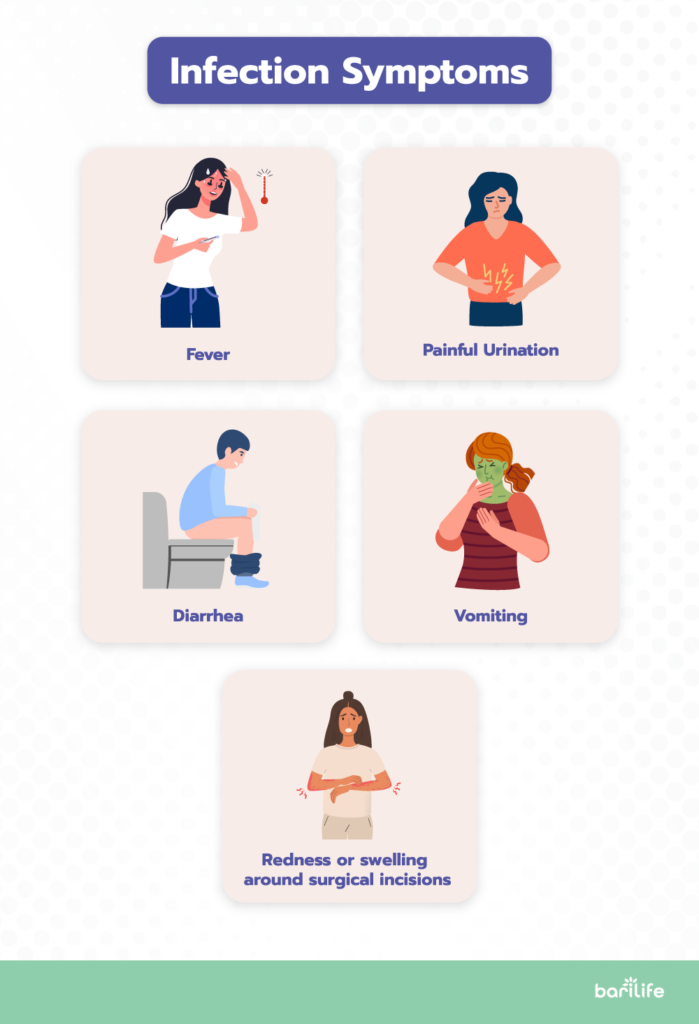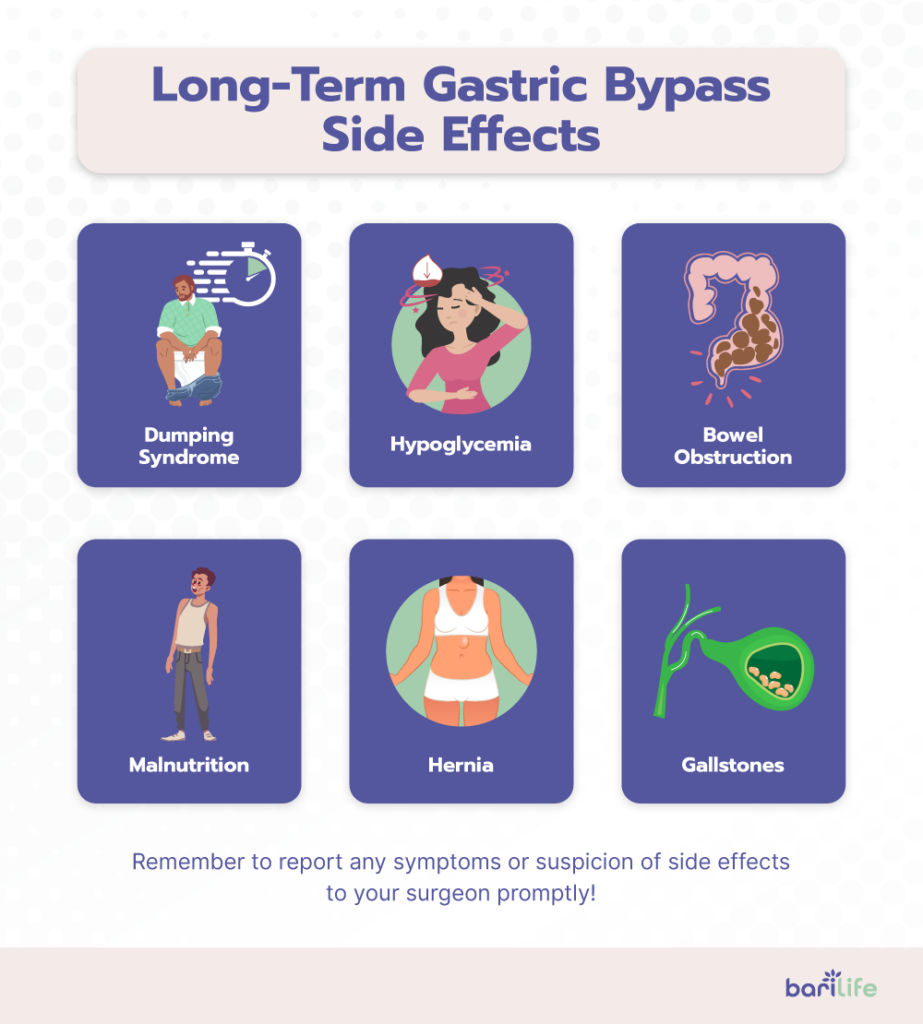Are you wondering what your gastric bypass surgery recovery time is going to look like? The recovery period after surgery is about three to six weeks, but there’s more than taking time to heal. Your whole lifestyle will change, including aspects like diet, exercise, and medications. Gastric bypass surgery patients have lots of post-surgery questions and everyone’s recovery is different. To take the guesswork out, let’s discuss your gastric bypass recovery time and expectations.
There are several different stages of your gastric bypass surgery recovery timeline. The two we are going to discuss today are the hospital recovery and the initial at-home recovery.
Hospital Recovery Time
The average hospital gastric bypass surgery recovery time is two to three days. Depending on your health history and recovery, your hospital stay may be longer. Let’s review what to expect with medications, exercise, diet, and wound care during your hospital stay.
Medications
After your gastric bypass surgery, expect to receive a variety of medications in the hospital. Some of these are short-term and other medications you will be taking for the rest of your life.
Pain Medications: After surgery, you will receive intravenous (IV) medications as needed for pain. After your nurse and surgeon have determined that you are tolerating a clear liquid diet, your doctor will switch over to oral liquid medications. Usually, this is a few hours after surgery or begins the following morning. To help with pain control, ask your nurse to time your pain medications about an hour before walking.
Blood Clot Prevention: Gastric bypass surgery and bariatric patients are at high risk for developing blood clots, also known as venous thromboembolism (VTE). To prevent blood clots, your surgeon will order a blood clot prevention medication, typically called enoxaparin. Your nurse administers enoxaparin for the duration of your hospital stay via subcutaneous injection. To increase medication effectiveness, sometimes surgeons prescribe this medication at home for an additional 10-14 days. If you aren’t receiving blood clot prevention medication or don’t know what a medication is that you are taking, ask your nurse or surgeon. They can teach you about medications and discuss changes to your plan of care.
Vitamins and Supplements: Expect to start your vitamin and supplements the day of or after surgery. Taking prescribed vitamins and supplements maximizes healing and decreases gastric bypass surgery recovery time. Also, it prevents vitamin and nutritional deficiencies before they can cause health problems. If you have extra unprescribed supplements that you would like to take, ask your doctor.

Exercise
Walking: Walking helps prevent blood clots after surgery and can also prevent pneumonia. Expect to start walking about four to six hours after surgery. Maybe you can suggest walking before your nurse does!
Breathing Exercises: Breathing exercises are also an important aspect of your recovery to prevent pulmonary complications. Your surgeon will likely order an incentive spirometer. An incentive spirometer is a device that helps with deep breathing exercises to strengthen your lungs. Your nurse will also teach you coughing exercises to clear excess airway secretions after surgery. Expect to complete these exercises once an hour while awake.
Strength Exercises: It’s never too early to get started on strength-building exercises, even in the hospital. Ask for a physical therapist during your hospital stay. They can give you lots of in-bed exercise ideas to help you get started!

Surgical Incision/Wound Care
You will have several abdominal surgical incisions to care for after surgery. Your nurse will teach you how to care for these incisions, change the bandages, and observe for signs of infection. Write down the instructions that the nurse gives you for future reference. Also, the next time your nurse changes your bandages, ask to change them yourself with their supervision. This is great practice for your future at-home recovery.
Diet
A few hours after surgery, you will start a clear liquid diet. If you tolerate clear liquids, your surgeon advances your diet to full liquids. As some hospitals don’t have great full liquid options that are protein-packed, bring protein shakes. Make sure they are pre-approved by your surgeon.
Discharge instructions
When your surgeon discharges you from the hospital, your nurse will review discharge instructions with you. They will review wound care, diet, exercises, medications, etc. Your surgeon will also schedule your follow-up appointments. Most of the time discharge instructions are printed, but also ask questions and take notes.
At-Home Recovery
After hospital discharge, your at-home gastric bypass surgery recovery time begins. This is where your “real” work starts! Most patients return to normal activities anywhere from three to six weeks. This can vary per patient, so keep your follow-up appointments to collaborate with your surgeon about when it’s ok to return to normal activities. Let’s review some common expectations for your at-home recovery.
Expected Weight Loss
Expect a period of rapid weight loss, which usually lasts a month to three months. Most gastric bypass surgery patients lose around 20 pounds in their first month. After your period of rapid weight loss slows, expect to lose an average of one to two pounds a week. Everyone’s weight loss journey will look different. The important aspect is to make sure you are losing, not gaining weight.
Advancing Your Diet
As your body tolerates the surgical and dietary changes, you will advance your diet through four post-op diet phases. Each phase has a different duration and dietary restrictions.
- Phase 1: High Protein Liquids: Two weeks, full of high protein liquids
- Phase 2: Pureed Foods: Two weeks, adding real foods, but not solids
- Phase 3: Soft Foods: 12 weeks, adding fruits and soft vegetables
- Phase 4: Stabilization Diet: 12 weeks and beyond, normal foods and small portions
If you would like more details about the bariatric post-op diet, here is a great article.

Home Exercises
Sometimes after surgery, your doctor will order home physical therapy. This is where a physical therapist visits your home, evaluates your physical abilities, and gives you exercise instructions. They work with your doctor, reporting exercise compliance and physical improvement. As your strength improves, you will no longer need a physical therapist.
It’s best to create an exercise plan before surgery. If you don’t know where to start, begin with low-impact exercises. Get an exercise buddy, as they will keep you accountable and make exercise go by faster. If you don’t have an exercise buddy, try smartphone apps like PACT Accountability or MyFitnessPal, to keep you accountable.
Follow-up Appointments
During your gastric bypass surgery recovery time, you will have several follow-up appointments with your bariatric surgeon. Keep these appointments! Appointments help your doctor monitor your weight loss journey and make necessary changes.
Most follow-up appointments begin a few days to a week after hospital discharge. After the initial post-op appointments, appointments are three months apart. This can vary per patient and depends on your recovery.
Know Your Signs and Symptoms
Now that we have discussed your gastric bypass surgery recovery time, let’s review some common post-surgical complications and their symptoms.
Infection
Post-surgical infections can come from a variety of sources, including urinary catheters, intravenous catheters (IVs), or surgical incisions. Post-surgical infections are uncommon. However, you should know what signs and symptoms to look for in case they arise. The Centers for Disease Control (CDC) lists infection symptoms as a few of the following:
- Fever
- Painful urination
- Diarrhea
- Vomiting
- Redness or swelling around surgical incisions
This is not a complete list of infection symptoms. If you believe you have an infection, call your doctor immediately.

Venous Thromboembolism (VTE)
As stated before, VTEs are a potential complication after surgery. If a blood clot forms in a deep vein, it’s called deep-vein thrombosis (DVT). Some signs of a DVT include pain, redness, and swelling of any extremity. If you have any of these symptoms, call your surgeon or go to the emergency room (ER).
If a blood clot forms or moves into your lungs, it’s called a pulmonary embolism (PE). A PE is life-threatening. Go to the ER immediately if you have PE symptoms such as chest pain, shortness of breath, or coughing blood-tinged sputum.
Long-Term Side Effects
Bariatric surgery also poses potential long-term side effects. Some long-term side effects include:
- Dumping Syndrome
- Hypoglycemia
- Bowel Obstruction
- Malnutrition
- Hernia
- Gallstones
This is not a complete list of long-term side effects. Report any symptoms or suspicion of side effects to your surgeon promptly.

Use this article to review expectations and guide your weight loss journey. Remember, everyone’s gastric bypass surgery recovery time is different. Work with your surgeon and healthcare team to achieve your weight loss goals!




What are your tips and tricks to post-bariatric success?